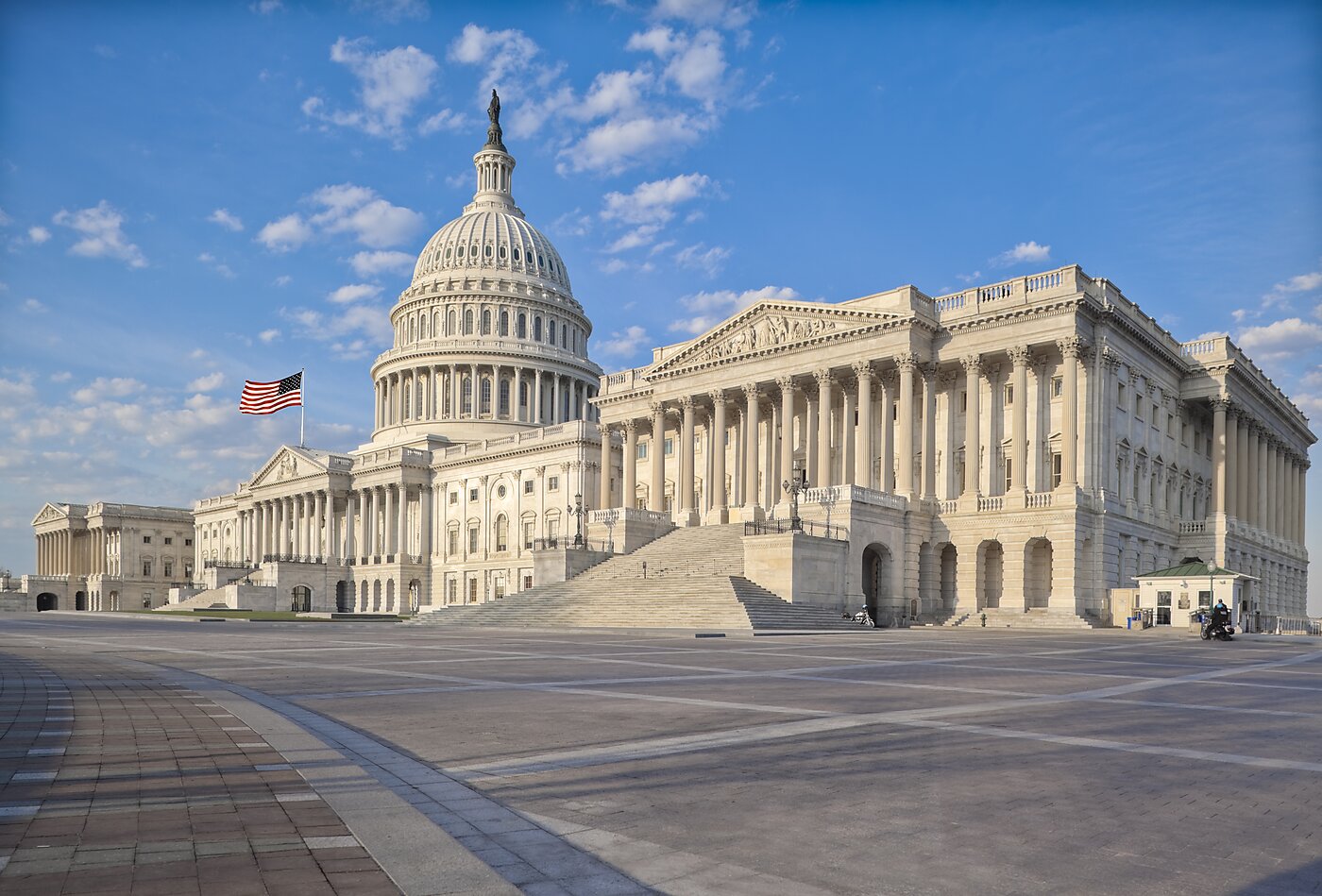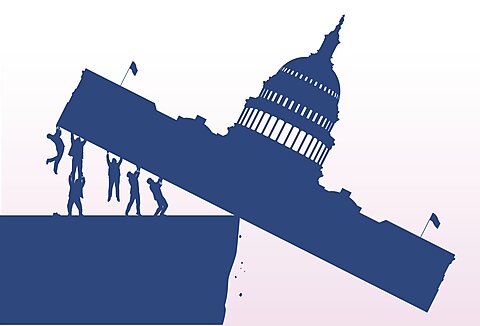Dominik Lett and Romina Boccia

Shrinking government is much needed and long overdue, but recent budgetary maneuvers by the Trump administration reshape the federal spending process for the worse. Impoundment—the unilateral pausing or cancelling of spending without congressional approval—has accompanied funding shifts that likewise lack clear congressional authorization, including for law enforcement, border control, the military, and welfare. If Congress fails to reclaim its constitutional mandate to manage the purse, this latest expansion of presidential power could become routine, deepening political polarization and eroding the foundation of the American system of checks and balances.
Defensible Cuts, Indefensible Process
Many of the administration’s cuts are defensible. Americans rightly believe that most government spending is wasteful, and government can and should be more efficient. Accordingly, the administration justifiably cut inappropriate federal funding, including:
- Rescinding over $3.2 billion in foreign development assistance. Foreign aid to promote economic development has a poor track record, undermining long-run growth by propping up undemocratic regimes.
- Rescinding more than $7.6 billion in energy-related funding. Clean energy subsidies distort the market at the expense of cheaper, more reliable energy sources, effectively amounting to a multibillion-dollar corporate welfare scheme.
- Rescinding at least $20 billion in infrastructure funding for New York and Chicago. Transportation subsidies encourage the inefficient provision of transportation services, in part due to myriad costly federal regulations and labor laws.
The Problem with Impoundment
However, the Constitution vests the power of the purse in Congress. When presidents cancel spending unilaterally, they attack the separation of powers itself.
Since the government shutdown started on October 1, the administration has frozen or canceled $28 billion in federal funding, primarily cutting infrastructure and energy subsidies concentrated in Democratic districts. These partisan cuts are part of a larger push to reshape federal spending by executive decree.
Earlier this year, the Office of Management and Budget issued a sweeping memo freezing trillions of dollars in federal spending (later withdrawn), and the Department of Government Efficiency (DOGE) has since claimed $110 billion in new savings through grant and contract terminations. And just prior to the end of fiscal year 2025, the administration also impounded $5 billion in foreign aid (through so-called pocket recissions). All these actions were taken without congressional approval.
The Problem with Executive Spending
Beyond impoundment, the administration has redirected funds to finance Republican-favored priorities without clear authorization, including:
- redirecting $8 billion in military research and development funding toward military personnel salaries,
- drawing from an unspecified source of funding to cover payroll for FBI agents,
- pulling an unspecified amount of money from the One Big Beautiful Bill to pay ICE officials,
- resuming operations at the Farm Service Agency (FSA) to help distribute $3 billion in farm subsidies through the Commodity Credit Corp., and
- using $300 million from prior-year tariff revenue to fund WIC, a food welfare program.
Many of the Trump funding shifts are suspect. Take the military salaries: transferring money from R&D to personnel pay might be defensible if Congress had authorized those funds, but it hasn’t. Congress approved personnel spending for FY2025, not FY2026. That distinction matters.
The ICE transfer differs in form but not in substance. Although the One Big Beautiful Bill Act increased ICE funding for new hires and bonuses in 2026 and beyond, it did not authorize backpay for current employees.
If the president can infer future-year congressional intent where no appropriation exists or retrofits last year’s funds to this year’s needs, reprogramming becomes a form of appropriation. That collapses the line between executing the law and making it.
In both cases, the deeper problem is Congress’s passivity. Why have a budget process at all if the president decides how—and when—money is spent?
The Withering Power of the Purse
Article 1, Section 9 is unambiguous: “No Money shall be drawn from the Treasury, but in Consequence of Appropriations made by Law.” Congress reinforced this principle through the Impoundment Control Act (ICA), which requires presidents to notify Congress and obtain consent for impoundments, and through the Antideficiency Act (ADA), which prohibits obligations or expenditures before or beyond congressional appropriations.
The actions by the current administration are in direct defiance of both these statutes and the constitutional principles that underpin them. Eroding Congress’s power of the purse brings us closer to an all-powerful imperial presidency, weakening checks and balances that secure Americans’ freedoms.
Pendulum Effect
In addition to violating constitutional principles, there are real political risks to normalizing the administration’s actions. The Trump administration has openly stated that it is using impoundments to punish political opponents. And once one party weaponizes the budget, the other will feel justified to retort in kind.

A future Democratic administration could withhold funding from ICE and redirect national security resources toward welfare programs. By selectively channeling funds away from Republican districts, it could weaponize federal spending to extract political concessions, pushing conservative lawmakers to concede to policies their constituents oppose.
During the Biden administration, Democratic leadership had the opportunity to support the ARTICLE ONE Act: legislation that would have reclaimed congressional power and reined in presidential emergency overreach. They failed to do so, perhaps in part because they naively thought Trump would never regain power. Now, Democrats are paying the price, with the Trump administration using emergency powers to reshape many core aspects of American life.
Republicans should not repeat the same mistake and should work with Democrats to restore Congress’s power of the purse.
A Better Path for Smaller Government
The Founders vested the power of the purse in Congress for a reason—no free people should trust one person with their treasury. The durable path to responsible government is through Congress: legislate within constitutional limits. Shrinking government by executive decree risks trading short-term wins for long-term institutional decay.
Managing the federal purse is Congress’s first job. Time to own it.























